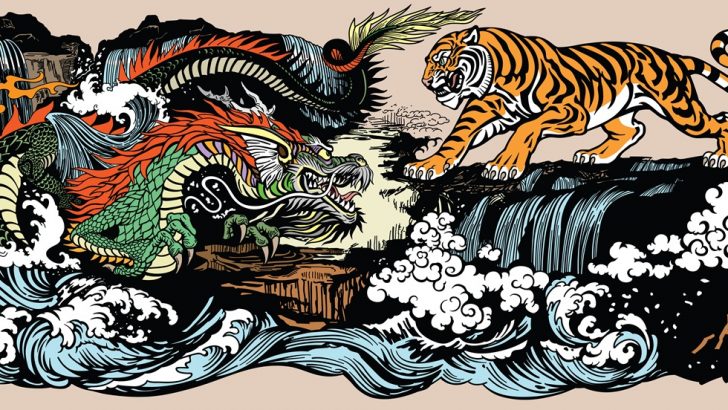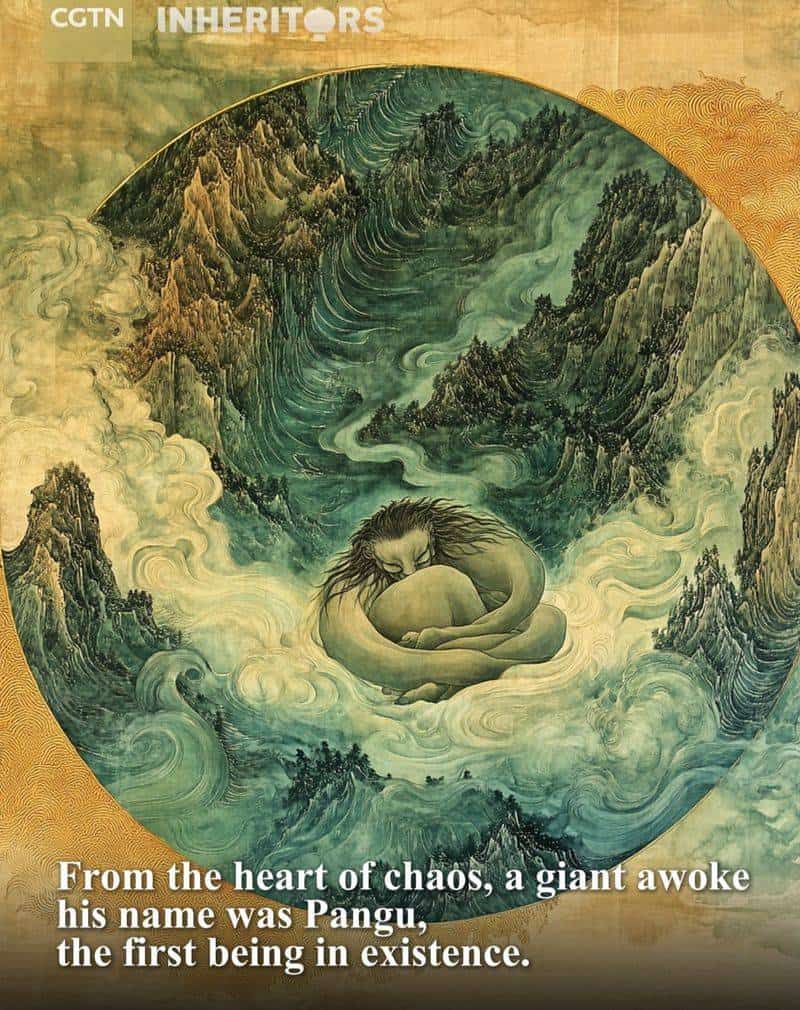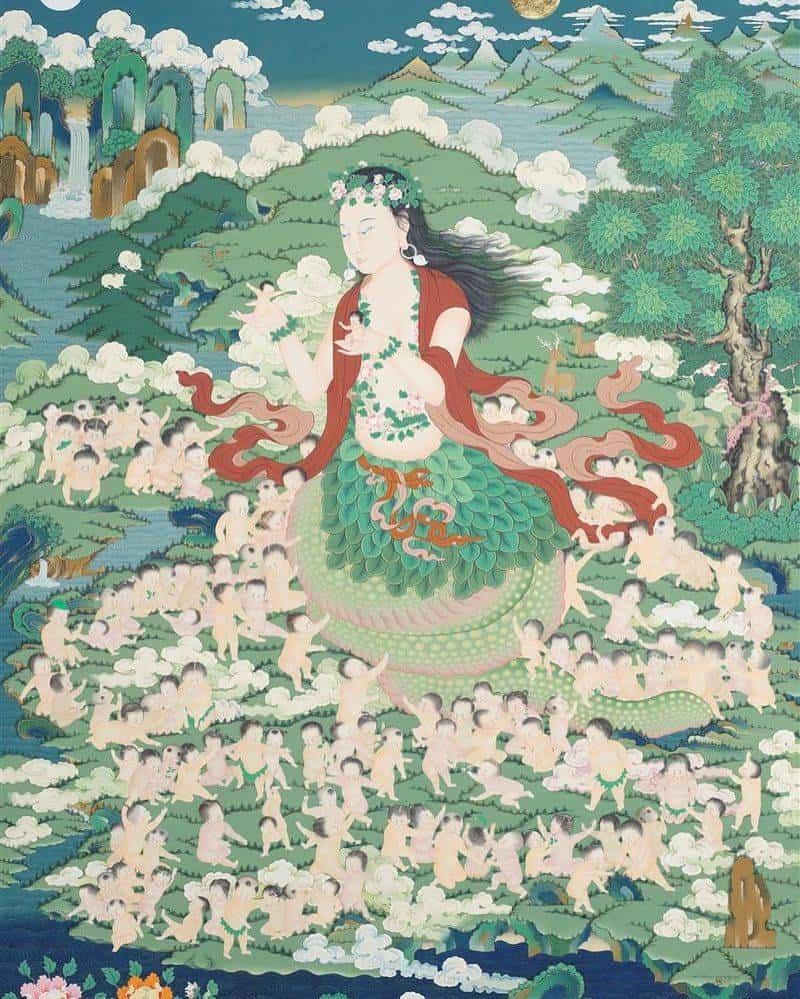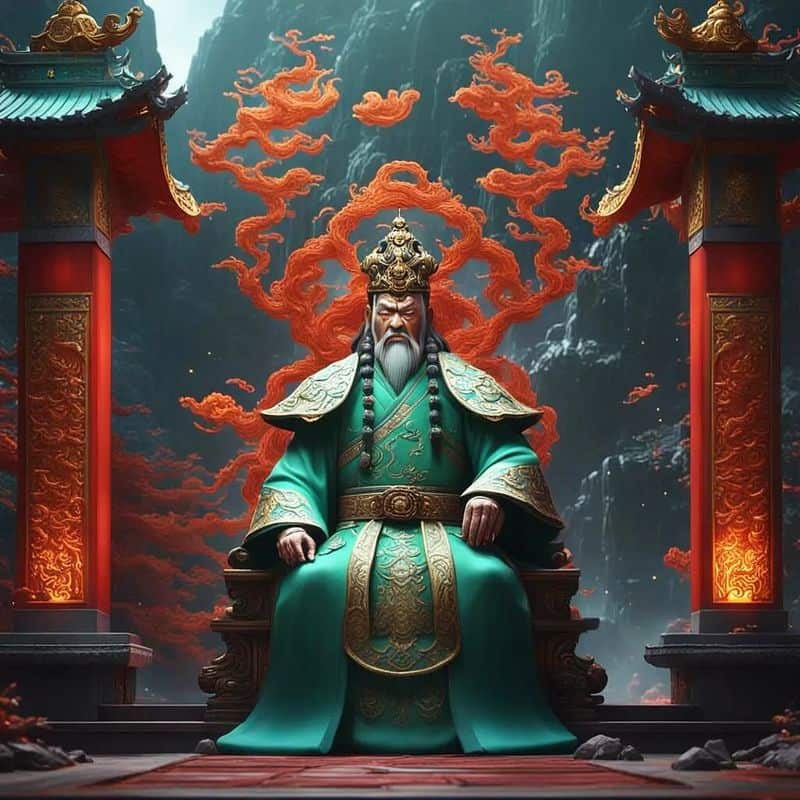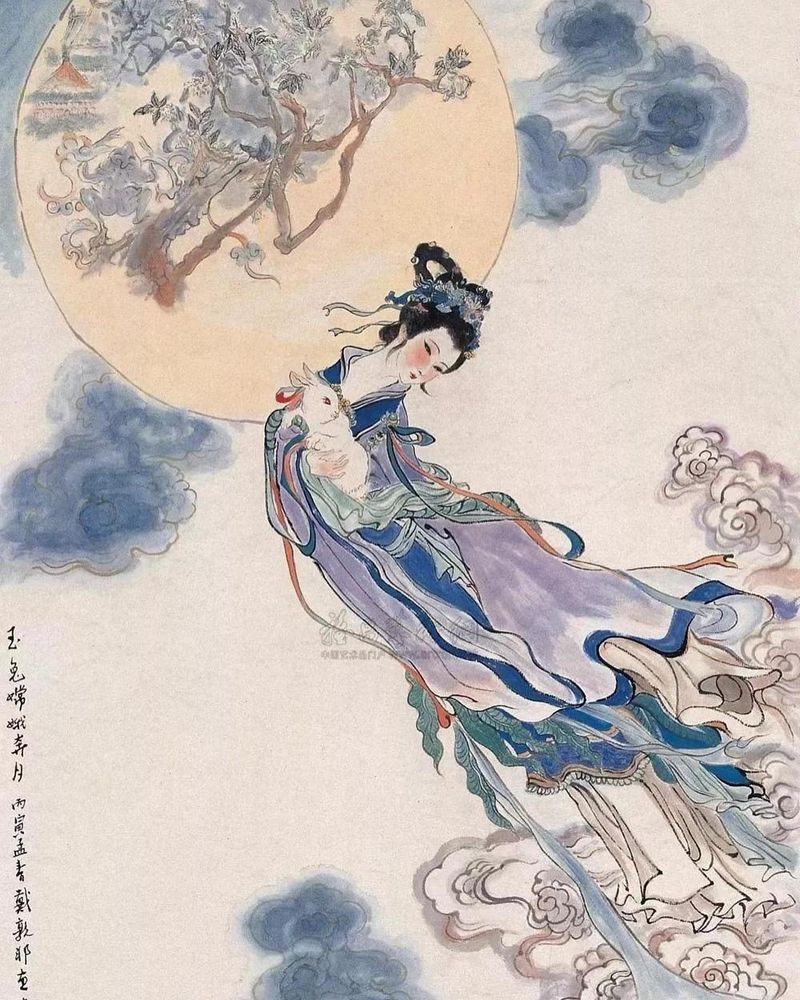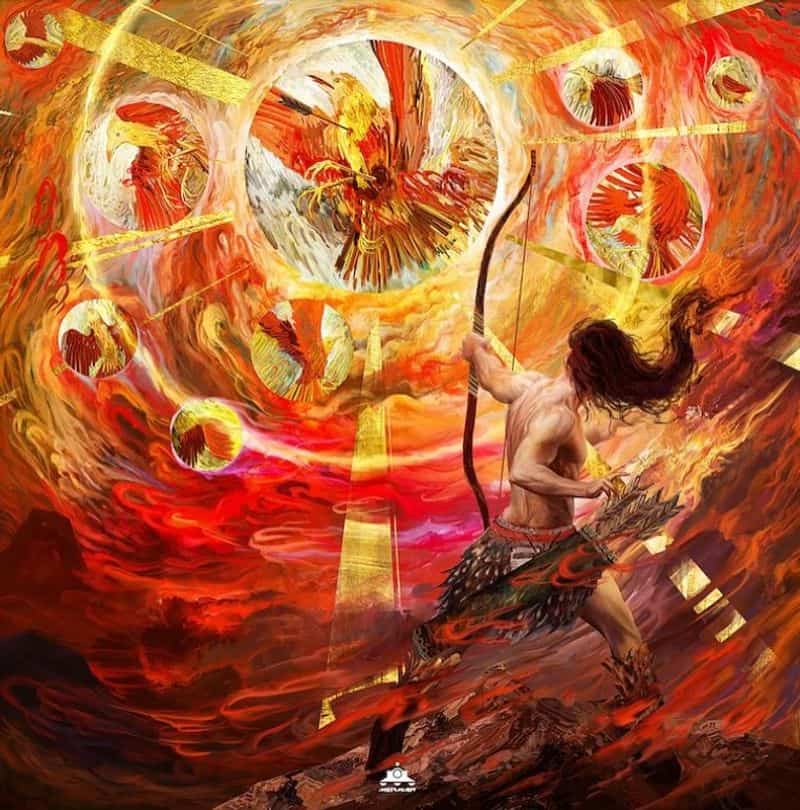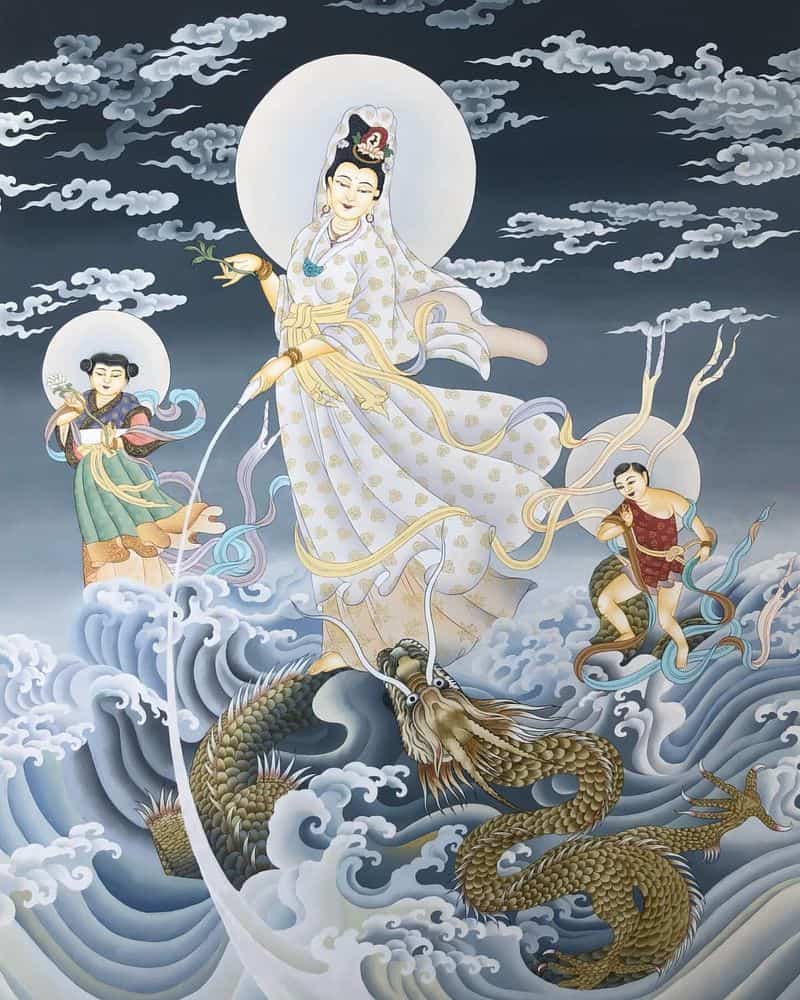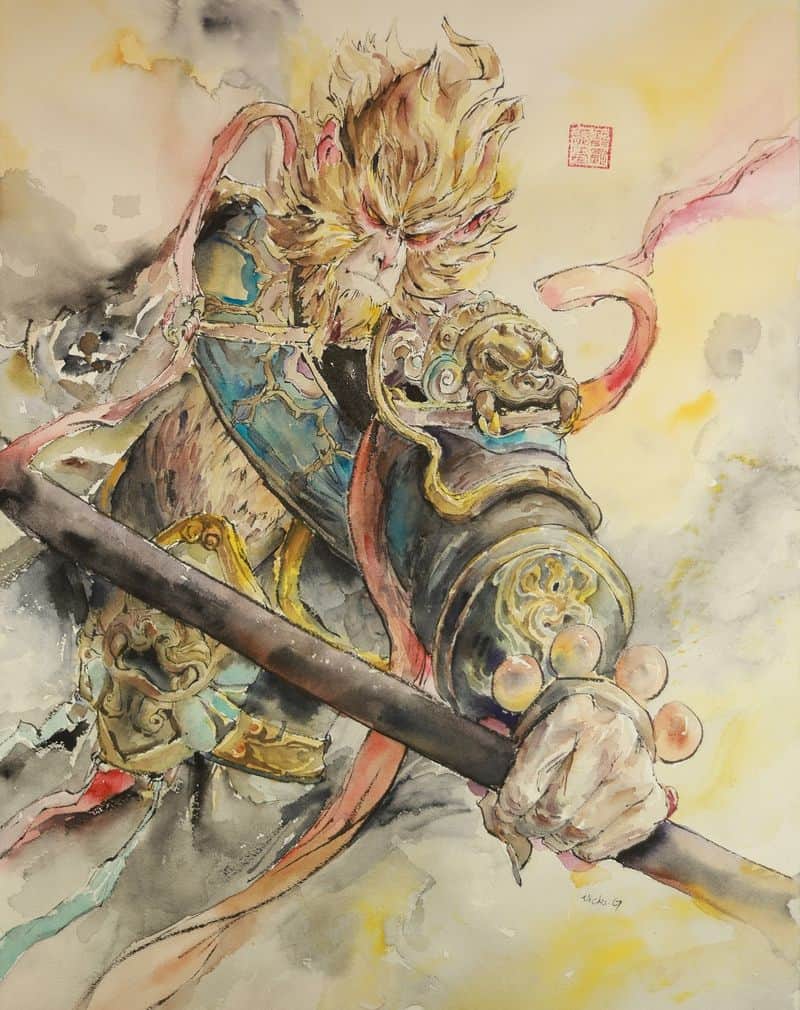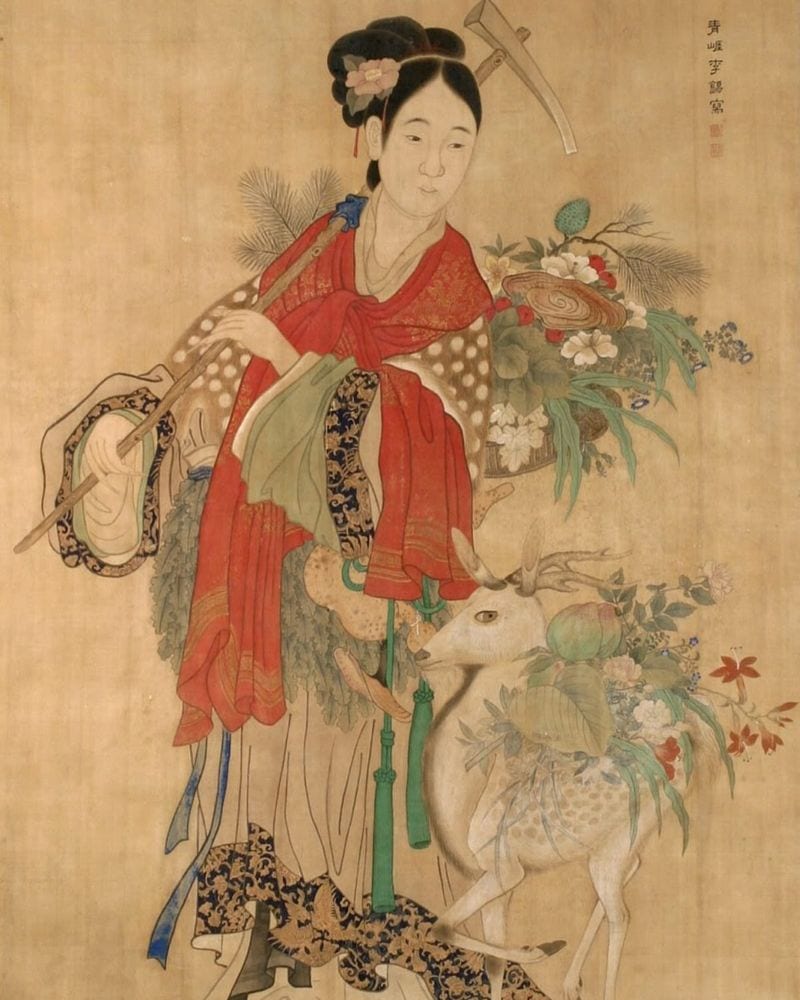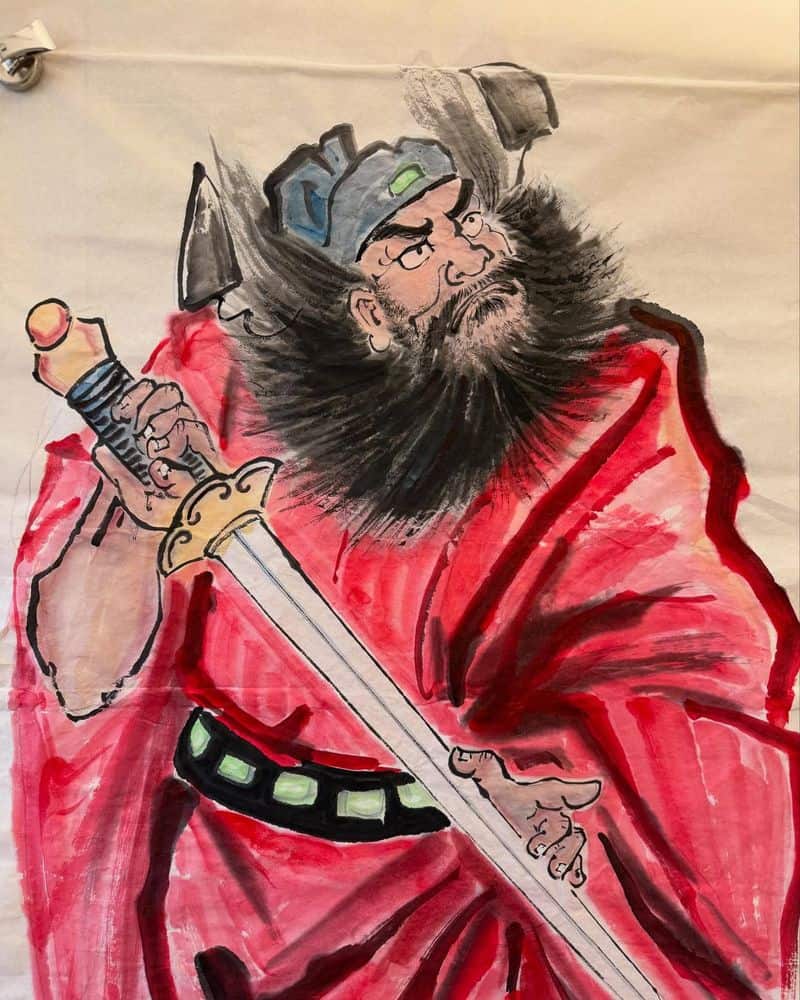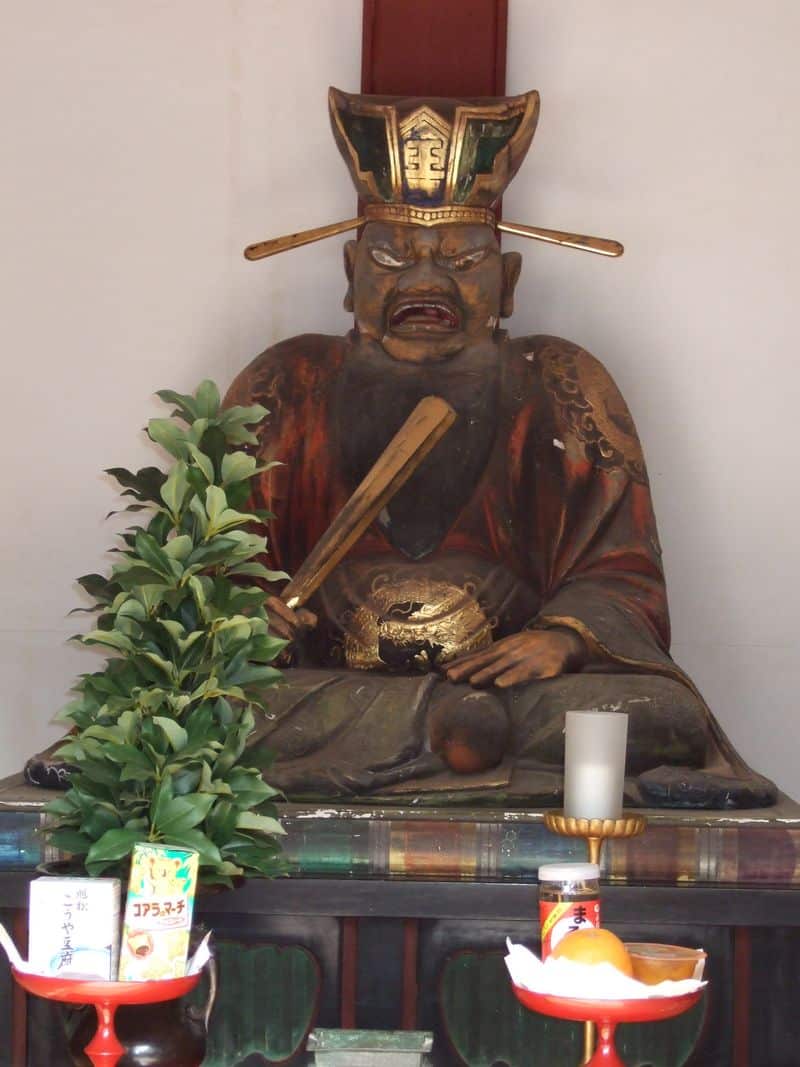Chinese mythology brims with powerful gods and goddesses who shaped the universe and continue to influence cultural traditions today.
These divine beings embody natural forces, human virtues, and cosmic powers that have fascinated people for thousands of years.
From world creators to compassionate protectors, these deities reveal the rich spiritual imagination of ancient Chinese civilization.
1. Pangu: The Cosmic Creator
Born from a primordial egg, Pangu stands as the original architect of our world. With axe in hand, he split yin from yang, separating heaven and earth from chaos.
His body became the very landscape we walk upon—his breath transformed into wind and clouds, while his voice thundered across the skies. His left eye became the sun; his right, the moon.
When Pangu finally rested, his sacrifice completed creation. His flesh formed soil, his blood became rivers, and his hair grew into forests and fields—a literal embodiment of the natural world.
2. Nüwa: Mother of Humanity
Serpent-tailed and determined, Nüwa crafted the first humans from yellow clay along the Yellow River banks. The wealthy sprang from her carefully molded figurines, while commoners came from clay droplets she flung with a vine.
When catastrophe struck and the sky collapsed, she melted five-colored stones to patch the heavenly canopy. Using a turtle’s legs as pillars, she restored cosmic balance and saved her creation.
Her marriage to Fuxi established proper human relationships. Together they taught civilization’s foundations—agriculture, hunting, cooking, and marriage—nurturing humanity like devoted parents.
3. The Jade Emperor: Supreme Ruler of Heaven
Atop the celestial hierarchy sits the Jade Emperor, orchestrating the heavenly bureaucracy with divine authority. Unlike flashier deities, his power lies in administration—assigning responsibilities to gods, reviewing mortal records, and maintaining cosmic order.
Born a mortal prince, he achieved godhood through 3,200 good deeds. His palace gleams with precious jade, guarded by immortal servants who carry out his commands across realms.
Each Chinese New Year, families offer him tribute, hoping for blessings. Though rarely appearing in myths as a main character, his invisible hand guides all heavenly affairs—the ultimate divine CEO.
4. Chang’e: The Lonely Moon Goddess
Trapped in eternal solitude, Chang’e floats through her palace on the moon, accompanied only by a jade rabbit. Her fateful choice—drinking her husband’s immortality elixir—transformed a mortal archer’s wife into heaven’s most beautiful prisoner.
Some versions claim she stole the potion selfishly; others insist she saved humanity from her husband’s potential tyranny. Either way, her sacrifice separated her forever from her beloved Hou Yi.
During Mid-Autumn Festival, mooncakes honor her legend while families gaze skyward. Children search for her silhouette against the lunar surface—a reminder that even immortality comes with a price.
5. Hou Yi: The Divine Archer
Master bowman with unmatched skill, Hou Yi saved humanity from scorching destruction when ten suns appeared simultaneously in the sky. With deadly precision, he shot down nine blazing orbs, leaving just one to light our world.
His heroism earned him an immortality elixir from the Queen Mother of the West. Tragically, his beloved wife Chang’e consumed it instead, ascending to the moon while he remained earthbound.
Beyond his archery fame, Hou Yi taught hunting techniques to early humans and battled numerous monsters. His story represents both triumphant heroism and heartbreaking loss—the price sometimes paid for saving others.
6. Guanyin: Goddess of Mercy
Compassion incarnate, Guanyin hears every cry of suffering across the universe. Though originally male in Indian Buddhism, Chinese culture transformed this bodhisattva into a maternal figure representing infinite kindness.
She postponed her own enlightenment, refusing to enter paradise until all sentient beings could join her. Her thousand arms symbolize her reach to help those in need, while her vase holds pure water healing all afflictions.
Fishermen pray for her protection against storms, while women seek her blessing for children. Her temples overflow with incense from devotees who find comfort in her promise: no suffering goes unnoticed.
7. Sun Wukong: The Monkey King
Born from a stone egg on Flower Fruit Mountain, the irrepressible Monkey King mastered 72 transformations and cloud-somersaulting travel. His magical staff, plucked from the Dragon King’s ocean palace, could shrink to needle-size or expand to crush mountains.
Heaven couldn’t contain his rebellious spirit. After disrupting the Jade Emperor’s peach banquet and erasing his name from death’s register, he declared himself “Great Sage Equal to Heaven.”
Buddha finally trapped him under Five Elements Mountain until the monk Xuanzang recruited him for the Journey West. His evolution from trickster to disciplined protector makes him Chinese mythology’s most beloved rogue—powerful yet relatable in his flaws.
8. Xi Wangmu: Queen Mother of the West
Mistress of immortality, Xi Wangmu reigns from her jade palace atop the Kunlun Mountains. Her sacred peach orchard produces fruit only once every three thousand years—each bite granting eternal life to those deemed worthy.
Ancient texts described her as half-human, half-beast with tiger teeth and leopard tail. Later traditions softened her image to a regal beauty surrounded by bird-women attendants who gather ingredients for her elixirs.
Even the mighty Jade Emperor seeks her wisdom, as she controls the secrets of life beyond death. Her legendary banquets attract deities from across the cosmos—exclusive gatherings where divine politics and cosmic secrets intertwine.
9. Zhong Kui: Demon Hunter Extraordinaire
Fierce-looking yet righteous, Zhong Kui patrols the boundary between human and spirit realms with his demon-catching bag slung over his shoulder. His terrifying appearance—bulging eyes, wild beard, and dark complexion—strikes fear into evil spirits but brings comfort to humans under his protection.
His origin story tells of academic heartbreak. After achieving highest honors in imperial examinations, the emperor rejected him for his ugliness. Humiliated, he committed suicide, but was appointed King of Ghosts in the afterlife.
During Chinese New Year, his image adorns doorways to frighten away bad luck. Wedding processions carry his likeness to ensure no demons disrupt the celebration—a fearsome guardian with a scholar’s heart.
10. Yan Wang: Judge of the Afterlife
Final arbiter of mortal souls, Yan Wang presides over the Chinese underworld with stern justice. His bureaucratic court processes the dead, consulting ledgers recording every deed—good and evil—performed in life.
Originally a compassionate official, legend says he grew frustrated with human wickedness. The Jade Emperor appointed him lord of the dead, where he developed his signature scowl and uncompromising judgment.
His eighteen levels of hell each punish specific transgressions—liars have their tongues pulled out, while the greedy swim in pools of molten metal. Yet even his harsh sentences aren’t eternal; after sufficient atonement, souls return to the wheel of reincarnation—Yan Wang’s ultimate mercy.

